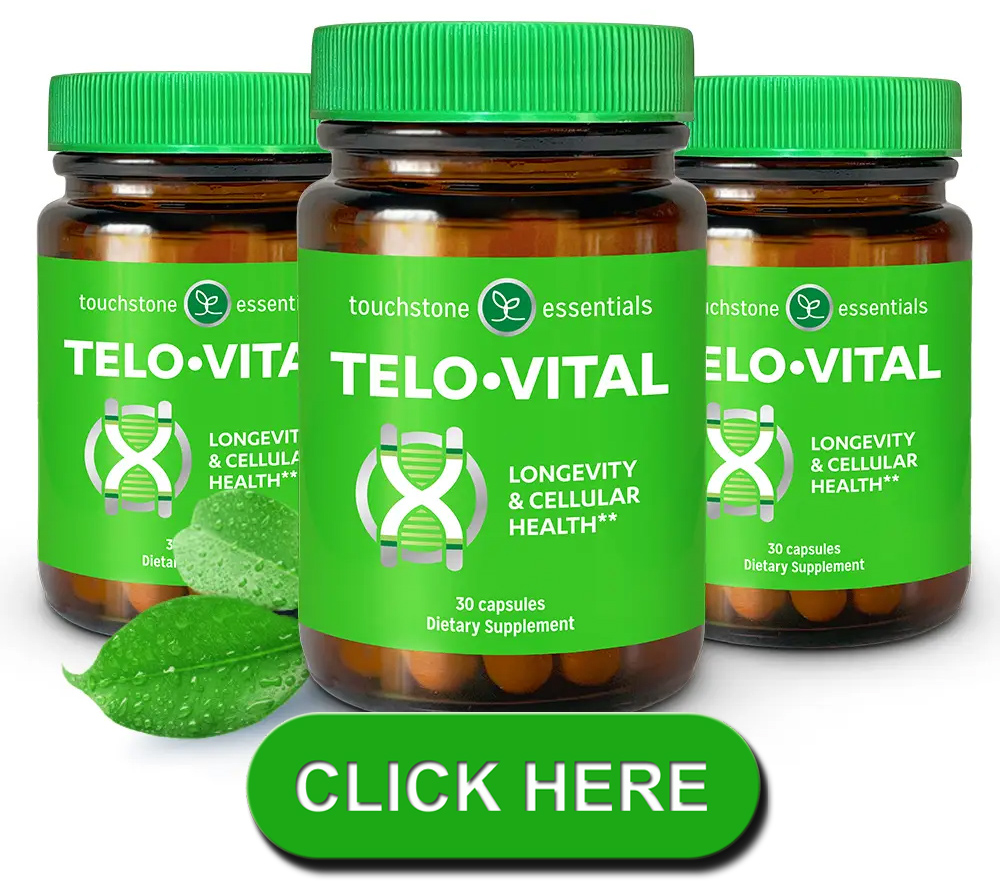Let’s talk about something that might be quietly determining how fast you’re aging right now – and no, it’s not just wrinkles or gray hairs. Deep inside your cells, at the very tips of your DNA strands, there are tiny protective caps called telomeres that act like the plastic aglets on shoelaces. Their job? Keeping your genetic material from unraveling every time your cells divide. But here’s what most people don’t realize: these microscopic timekeepers might hold the key to aging better – or faster – than your actual birthday suggests.
Why Your Telomeres Are Like a Biological Hourglass
Each time your cells replicate (which happens constantly to repair and renew your body), your telomeres get a tiny bit shorter. Think of it like a pencil eraser wearing down with use. Research from places like Harvard and the National Institutes of Health shows that when telomeres become critically short, cells can’t divide properly anymore. This isn’t just about getting older – it’s directly linked to when age-related problems start showing up.
Studies published in journals like PLoS Genetics reveal something fascinating: people with naturally longer telomeres tend to stay healthier longer, while those with shorter telomeres often show early signs of aging-related diseases like heart trouble, diabetes, and even weaker immune systems. It’s not just about lifespan – it’s about healthspan, those precious years where you’re not just alive, but thriving.
What’s Grinding Down Your Telomeres Faster?
You might be surprised how everyday choices are quietly filing away at these protective caps. Chronic stress, for one, is like pouring acid on your telomeres. Groundbreaking research from UCSF revealed just how powerfully stress attacks our cells: mothers in high-stress caregiving roles had telomeres that appeared a full decade older than their relaxed peers.
But here’s the hopeful part – the same study found that stress management techniques could slow this damage. Your diet plays a significant role too – processed foods and sugar create oxidative stress that chews through telomere length, while antioxidant-rich foods like berries and leafy greens act like tiny bodyguards for your DNA.
Even your workout routine matters more than you think. Research highlighted by Live Science shows that regular, moderate exercise (think brisk walking or cycling) helps preserve telomere length, while couch potatoes experience faster shortening. And if you needed another reason to quit smoking, it’s literally burning away your telomeres at an alarming rate.
The Good News: You Can Protect (And Maybe Even Repair) Them
Here’s where it gets exciting. While we can’t stop telomeres from shortening altogether (that’s just biology), science suggests we might be able to slow the erosion and possibly even stimulate repair. The enzyme telomerase, which won scientists a Nobel Prize, can actually rebuild telomere length, and certain lifestyle factors appear to nudge this process along.
Intermittent fasting, for instance, isn’t just a weight loss trend. Studies suggest it may help maintain telomere length by giving your cells a break from constant digestion and reducing DNA damage. Getting quality sleep is another powerful tool – poor sleepers show measurably shorter telomeres. Even your social life plays a role; people with strong social connections tend to have better-preserved telomeres, likely because chronic loneliness creates subtle but damaging stress.
Other research-backed telomere boosters include:
- Meditation and mindfulness – Just 12 minutes daily has been shown to increase telomerase activity by 43% in stressed populations
- Omega-3 fatty acids – Regular consumption of fatty fish or high-quality supplements can slow telomere shortening by up to 62%
- Vitamin D optimization – Those with adequate vitamin D levels have significantly longer telomeres, likely due to its anti-inflammatory effects
- Moderate, regular exercise – Not intense training, but consistent movement like brisk walking preserves telomere length better than sedentary lifestyles or extreme athletics
The most exciting finding? These strategies appear to work synergistically. A landmark UCLA study found that participants who combined a plant-rich diet, stress management, and moderate exercise saw measurable telomerase increases in just three months, proving it’s never too late to start protecting your cellular clock.
Your telomeres are like the ultimate report card for how well you’re treating your body. The better you care for them, the better they’ll care for you, potentially adding not just years to your life, but life to your years. While we’re still unlocking all their secrets, one thing’s clear: those tiny DNA caps are listening to every lifestyle choice you make.
Click here to see our favorite anti-aging formula:





















I really enjoy and appreciate TTAC. Your communications are helpful and applicable to our times.
I wonder if you could focus on Chem Trails since we are being sprayed daily all around the world. I know this because I see the chem trails in movies and series nowadays.
No one is highlighting this attack on our HEALTH!
You’re the best,
Jeanette 🌻
Ty and Charllene are my personal heroes-I’ve learned so much and at 80 I’m in great health – no illness, no medications, and no cancer. Praise God!
Big thanks to TTAC for all they do! And they are right in line with another hero, RFK, Jr.!
Telomeres, one great reason to invite Dr. Al Sears, holistic doctor in FL (out of Jupiter, FL) to discuss. He is also very educated and a big doctor in anti-aging and knows a lot of the newest things going on in the brain like KIBRA. KIBRA is a new brain aging that combines resveratrol with butyrate, two supplements, which is something pHARMa would never do!
KIBRA, a protein in the brain and the kidneys, is necessary to make memories. Research shows that the brains of Alzheimer’s patients are deficient in this protein. Low brain levels correspond directly with the severity of dementia as well as higher levels of the toxic tau protein.
Boosting KIBRA restores synaptic function – and reverses memory loss according to early research.
The good news is that there is already one well-known nutrient that increases KIBRA levels: butyrate. You’ve heard me talk about how butyrate helps improve gut health and prevent disease.
What Is KIBRA And Why Is It So Important To Reduce Memory Loss?
All the information in your brain is essentially stored in the way that your neurons communicate and connect with each other. Every time you learn a new fact or make a new memory, your neurons have to adjust their connections to store this new information.
KIBRA’s primary purpose is to help create AMPA receptors. These are the main neurotransmitter receptors in your brain responsible for healthy brain function.
Hello & Happy Memorial Day weekend!
I have been using Vivix since it was released. Pat Robertson on the 700 Club promoted Vivix, holding the small bottle in his hands. Telomeres are the protective caps on the ends of our chromosomes that contain our DNA. As we age, our telomeres gradually shorten, and shorter telomeres are strongly correlated with various health issues. Slowing telomere shortening, therefore, may support a longer, healthier life.* In a published study, adults who took Vivix and other Shaklee supplements had a 57% lower rate of telomere shortening compared to a healthy control group.3
I am an older Greek, and I wish to tell a heartfelt thank you for your struggle for Humanity. I am following your actions closely, starting with your efforts in the fight against cancer, a disease which, although financially devastated, I treated with natural alternative means (without surgery, radiation, chemotherapy)…
God bless You and your loved ones
Great article!